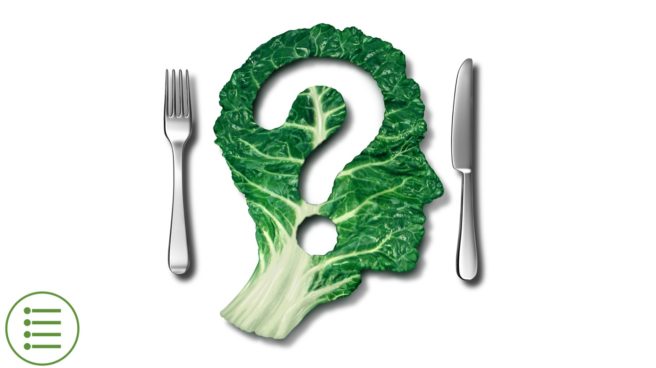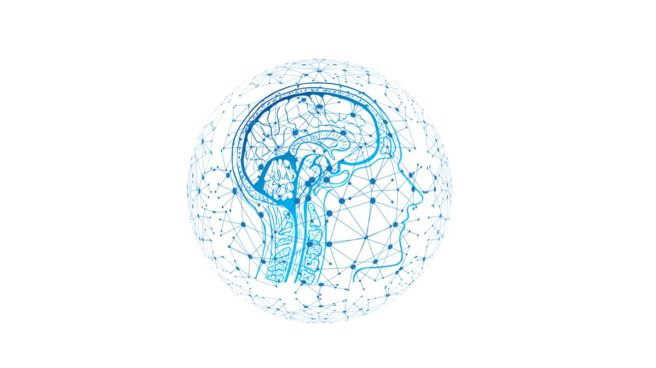With all the fad diets, health crazes, daytime doctor shows, and sensational news stories out there, it can be difficult to know what foods and activities are really in the best interest of our health. Well my guest today has been fighting against all the hype for years, providing a clear, science-backed resource of free nutrition education. And now, he’s refined thousands upon thousands of studies into one easily approachable and engaging text explaining what the science actually says. Not one to beat around the bush or mince words, the book is appropriately entitled, How Not To Die. [tweet this]
I’m so excited and honored to welcome back Dr. Michael Greger of Nutritionfacts.org. If you missed his previous video series covering all of the common nutrients of concern when going vegan, you can check it out later here and linked below.
Dr. Greger is a physician, New York Times bestselling author, and internationally recognized speaker on nutrition, food safety, and public health issues. He has dedicated his life to providing accurate, unbiased, science-based, free information on nutrition and overall health on his non-profit website Nutritionfacts.org. Today you’ll hear what inspired him to take this path in life and why he’s so passionate.
Dr. Greger’s book How Not To Die came out on December 8th, 2015 and instantly became a New York Times Best Seller. The book reveals the top 15 causes of preventable death in the United States and Dr. Greger’s daily dozen of foods that add years to your life.
Without further ado, let’s hear from Dr. Greger. To hear his entire interview, check out the video above, but here are some choice nuggets.
On what inspired him to dedicate his life to nutrition medicine:
“That’s what I actually started the book with – how I got into this, why I’m even a doctor, why I practice the kind of medicine I practice today, why I’m so compelled to dedicate my life to this work. It’s because of my Grandma, who was diagnosed with end stage heart disease aged 65. I was just a little kid when the doctor sent my Grandma home to die, confined to a wheelchair [with] crushing chest pain.
She’d already had so many open heart surgeries she basically run out of plumbing at some point, you get so scarred up inside. Nothing more they could do, her life was over aged 65. And then, she was watching 60 Minutes, and there was this section on this crazy guy, named Nathan Pritikin, who claimed to be reversing heart disease with his new clinic in California. She somehow made the cross-country trip, and became one of his early patients. In fact she’s featured in his biography as one of his early success stories. It talks about Frances Greger. Shows up in this wheelchair and they put her on a plant based diet, graded exercise program. Within a few weeks she’s walking ten miles a day [and] goes on to live another 31 years [to age] 96, getting to enjoy her six grandkids, including me. Inspiring one of them to go to med school, and living long enough to see him graduate from med school, and that’s why I practice lifestyle medicine.”
His book addresses the top 15 causes of premature death. Most people tend to think that “maybe I have a few unhealthy habits but it’s not that bad.” As someone who is routinely surveying the state of nutrition in America, how bad is it right now?
“It’s pretty bad. I talk about how “SAD” the Standard American Diet is and how few even get like a serving of fruit a day, a serving of vegetables. 96% don’t get the recommended three servings a week of beans. 97% of Americans are fiber deficient. 98% of Americans are Potassium deficient. And these nutrient deficiencies are because people aren’t eating enough plants.”
In his book he reveals the “daily dozen,” the foods that we should all consume on a daily basis. If he had to choose the most powerful disease-fighting food, what would it be?
“Oh, it’d be greens — dark green leafy vegetables. We need more greens. Now the data suggests the most healthful [are] fruits and then nuts. [Those] are the two most health promoting. But I think people tend to eat fruit, people tend to eat nuts, but what they don’t eat is greens. So in terms of something I really want to encourage people to eat — dark green leafy vegetables and legumes: beans, split peas, chickpeas and lentils. These are the two foods we’ve really got to get into people’s diets. But the number one killer (dietary risk factor) in the world – not eating enough fruit.“[tweet this]
On where the misinformation regarding fruit and diabetes arises from: [tweet this Q]
“So we realize the industrial sugars — high fructose corn syrup and table sugar — are bad for us. Where’s fructose found? In fruit, so fruit must be bad too. How about but you look at the science? It’s just absolutely not true, right? Fruit helps liver health. Fruit helps hypertension. We’ve evolved to eat fruit, in fact we’re actually more frugivores than folivores. So actually we are designed to eat fruit. And then that’s the number one risk factor, dietary risk factor, for death is inadequate fruit consumption. In fact if you take diabetics, split em into two groups, half are told limit your fruit, half are told eat more fruit, guess who does better? The diabetics told to eat more fruit. Packed with fiber, I mean, come on people!”
On whether diet and exercise are really enough to reverse, and even cure diseases or if other medical intervention is sometimes necessary:
“Even just diet alone can reverse disease. How about our number one killer, number one killer of men and women, the number one reason you and everyone you love will die: heart disease. [It] can be prevented, arrested, treated and cured with diet alone. [tweet this] As Dr Esselstyn has shown [and] other lifestyle medicine pioneers such as Ornish and Pritikin, used a combination of lifestyle approaches including a plant based diet plus exercise, stress reduction, all these other things.
Esselstyn, [who] just used diet, showed the same remarkable reversals, opening up arteries, in some cases, without drugs, without surgery. Now are drugs and surgery useful in some indications? Absolutely. Particularly for acute conditions. You break your leg? You want someone to set it. You have an infection? You want antibiotics to cure it. But chronic diseases, we’re talking 85% of our health-care dollars go to chronic diseases. Diabetes, high blood pressure, obesity, heart disease, cancers. These are chronic diseases for which modern medicine has little to offer in terms of treating the cause of the disease, because the cause is lifestyle. It’s not medication deficiency.”
His book has a chapter on healing suicidal depression with diet. On whether there any times when mental health issues are beyond the realm of dietary influence:
“I think diet plays a minor role in mental health. I mean the surprise with that chapter is that it plays any role at all. And in fact it plays the most, so a plant based diet is found to be the most powerful intervention in improving mood within a matter of weeks, no other diet has ever been shown to have the effects. But having said that, that doesn’t mean that it’s going to, I mean just because it works better than everything else doesn’t mean it works particularly well. There’s lots of mental disorders for which we have no data on diet at all, all we have is the depression/anxiety data. But it’s remarkable, and hey, people suffering from these mental disorders need all the help they can get.”
On the predominant belief that a plant-based diet is expensive:
“It’s ridiculous! I mean, what could be cheaper than like a can of beans? Sweet potatoes, cabbage, frozen vegetables, a can of tomatoes, whole grain pasta, like come on!? So isn’t there like a book, Vegan On Four Dollars A Day? Right? Per family member. Four bucks a day period. Right? So you can eat healthier than anybody else, cheaper than anybody else. More environmentally sustainably than anybody else. It’s the same diet.”
I hope you enjoyed hearing from Dr. Greger. How Not To Die is available now and 100% of proceeds go to charity.
I’d love to hear what you thought of what Dr. Greger had to share. Have you lost any loved ones to preventable illnesses? Have you known anyone who’s reversed their conditions? Let me know in the comments!
If you liked this death-defying nugget, do give the video a thumbs up and share it around to help others find true health. If you’re new here, I’d love to have you as a subscriber. I put out fresh content covering all aspects of veganism every Monday, Wednesday and some Fridays. To help support Bite Size Vegan’s educational efforts, please see the support page or join us in the Nugget Army on Patreon. Now go live vegan, stick to the science, and I’ll see you soon.
— Emily Moran Barwick
The post How NOT To DIE: Foods That Add Years | Dr. Michael Greger appeared first on Bite Size Vegan.



